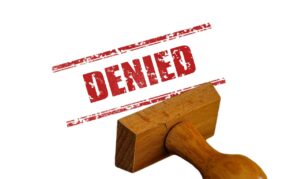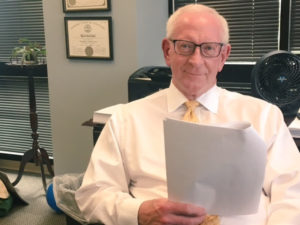 The Most Common Causes of SSDI Denial
The Most Common Causes of SSDI Denial
Why was your disability claim denied? And if you’re just starting to apply for SSDI, how can you avoid a denial in the future?
Our Memphis SSDI lawyers have worked with all types of cases. For over thirty years, we’ve helped people in Memphis get the disability benefits they need.
When we approach an SSDI appeals case, we help identify what went wrong, so we can hopefully fix it. So here are the most common reasons the SSA denies people’s disability claims – and how you can avoid the same fate.
Failing to Follow Doctor’s Orders
The SSA looks at your doctor’s orders when making their decision. They want to see you did everything you were told and made your best effort to get better.
Unfortunately, sometimes doctors’ orders differ from each other. You may decide to take one doctor’s advice and not another’s. In that case, you need to file documentation to explain your decision.
Here’s more on SSDI denial for failing to follow your doctor’s orders.
 Lack of Medical Evidence
Lack of Medical Evidence
With SSDI, you can easily think you’ve turned in enough information when, in fact, it was just the start. The SSA routinely denies people disability because of a lack of medical evidence.
You should always give the SSA the most comprehensive medical records you have. In addition, you can request doctor’s statements and additional evaluations to help back up your claim.
Bear in mind, medical evidence should prove two key things:
- you have a disability, and
- the disability impacts your ability to work and earn a stable income.
The more medical evidence you can provide to show this, the better.
 Work History
Work History
SSDI functions like an insurance plan through the US government. You pay into this plan every paycheck through your taxes, including self-employment taxes if you run your own business.
Then, if you become unable to work because of a disability, you can request payments through this insurance program.
This means everyone in the workforce becomes a part of the Social Security Disability plan. As you work, you pay more and more into the plan, and thus are eligible to receive more back if you need it.
Some people who apply for SSDI simply don’t have enough work credits yet to receive the benefits. Here’s more about how those credits work and how work history can impact your SSDI application.
Age
In addition, age can play a big role in your SSDI application, for better or worse. If you’re close to or past retirement age, you may not receive SSDI because you qualify for Social Security retirement payments instead.
Or, conversely, young applicants may not have had enough time to pay into the system (see Work History above).
In addition, the SSA considers your ability to retrain into new work, and age can play a factor in that. We’ve written more about how age impacts your SSDI application and what to keep in mind.
Too Much Income
Depending on the situation, you can make a small amount on the side and still receive SSDI benefits. In fact, it’s often necessary. SSDI comes with long application wait times; and even if you get approved, the payments may not cover your basic expenses.
As a result, a number of people find low-paying, part-time work they can do within the limits of their disability. For example, someone might be able to drive an Uber or do a small amount of data entry to help make ends meet.
However, the SSA has limits on how much you can make. If you make more than their limit, the SSA might assume you have the ability to return to full-time work, even if you don’t.
SSA Mistakes and Errors
The SSA is a large federal office filled with human beings who can make mistakes. Information gets lost, misread, filed incorrectly, and more.
This can lead to very frustrating situations for SSDI applicants. If things go wrong, it can be hard to prove the error and set it right in time.
Fortunately, we’ve dealt with these situations before and can help if you get denied SSDI because of an SSA mistake.
A Lawyer When Your Disability Claim Is Denied
As you can tell from the above examples, SSDI applications can be extremely complicated – and it’s not always clear why the SSA denies your claim. Fortunately, you have the ability to make it right.
 If your disability claim is denied, you have 60 days to appeal. As quickly as possible, you should speak with an experienced SSDI attorney.
If your disability claim is denied, you have 60 days to appeal. As quickly as possible, you should speak with an experienced SSDI attorney.
Our award-winning Memphis team can help you every step of the way, including:
- identifying what went wrong with your application
- gathering evidence to strengthen your claim
- representing you at the appeals hearing
- making sure the judge has an accurate understanding of your situation
- and more.
Plus our payment is limited by law: we don’t get paid anything unless we win your case. Even then, it’s just a fraction of your past-due benefits. You keep everything you win moving forward.
If you’re denied disability, don’t just give up. Talk with us today online or give us a call at 901-327-2100. The conversation is free.

